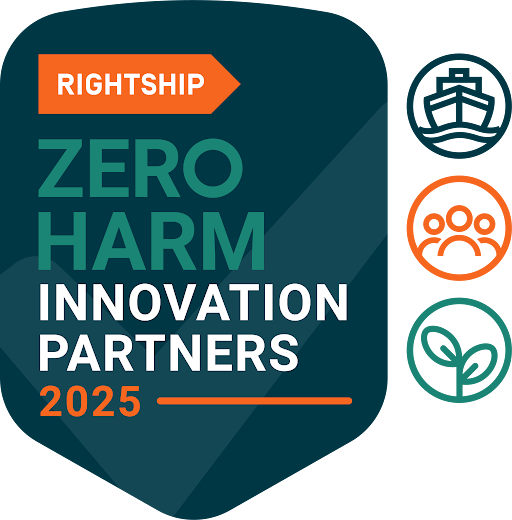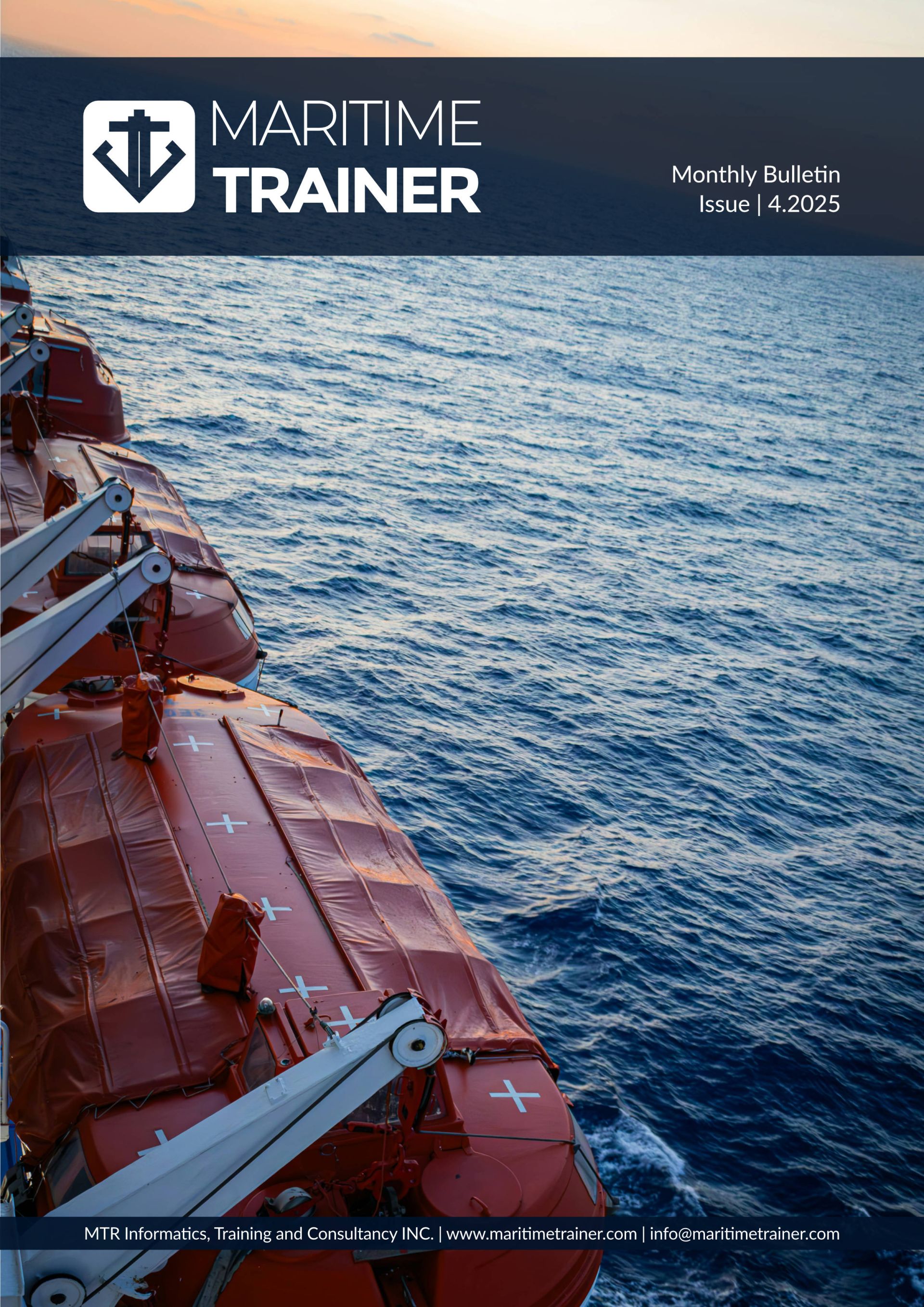Apr 4 • Maritime Trainer
April 2025 Maritime Insights: Tackling Safety, Inclusion & Operational Challenges at Sea
The maritime industry continues to evolve in response to social, regulatory, and safety demands. In April 2025, key developments shed light on the importance of crew protection, inclusivity, operational readiness, and environmental compliance. This month’s Maritime Trainer Bulletin covers essential updates every maritime professional should be aware of.
🌐 Promoting Gender Inclusion: IMO’s Call to Close the Data Gap
During this year’s International Women’s Day celebrations, the International Maritime Organization (IMO) emphasized the urgent need to address the gender data gap in shipping. While women represent a growing part of the maritime workforce, data collection and transparency remain insufficient.
The IMO and other stakeholders aim to create a more balanced, equitable, and productive maritime sector by improving gender-related statistics and fostering inclusive policies. Inclusion isn’t just a social issue—it’s a strategic imperative for industry innovation and resilience.
⚠️ BIMCO Alerts the Industry to Drug Smuggling Risks
BIMCO has issued a strong warning regarding the increasing frequency of drug smuggling operations using commercial vessels. The consequences for unaware crew members can be severe—ranging from prolonged detention to criminal charges.
The bulletin advises maritime companies to implement enhanced search protocols, regular inspections, and crew awareness training to reduce vulnerability to smuggling activities. With tightening global scrutiny, risk mitigation is more essential than ever.
♻️ Ship Recycling and Hazardous Waste Management in Bangladesh
IMO experts visited Chittagong ship recycling yards in Bangladesh, working with local authorities to review and enhance hazardous waste handling procedures under the Hong Kong International Convention (HKC).
This initiative included hands-on guidance for better waste segregation, storage, and disposal, ensuring worker safety and compliance with international environmental standards. As the HKC enters into force in 2025, these best practices will shape greener, safer recycling operations across the region.
🧠 Enclosed Space Fatalities: A Persistent and Preventable Danger
Despite years of awareness campaigns and revised procedures, enclosed space fatalities remain one of the leading causes of seafarer deaths. A new industry-wide survey seeks to understand why these incidents continue to occur—and how to stop them.
Initial data points to issues like procedural complacency, inadequate training, and insufficient monitoring. The survey’s outcome is expected to drive stricter enforcement and renewed emphasis on confined space entry protocols, checklists, and emergency response training.
📉 Aging Bulker Fleet Faces Operational Pressure
According to Veson Nautical’s latest report, much of the world’s bulk carrier fleet is aging, with many vessels operating at reduced speeds to meet fuel efficiency regulations. The result is a growing divide between modern, eco-efficient vessels and older ships under pressure from both regulators and charterers.
The trend could reshape charter markets and maintenance strategies, prompting owners to invest in fleet upgrades or digital tools that enhance efficiency. A future-proof fleet is no longer optional—it’s a competitive necessity.
🥗 Crew Health Focus: Food4Seafarers Initiative Launches
Seafarer well-being starts with proper nutrition—and current onboard meal standards are often lacking. The Food4Seafarers project, led by the World Maritime University (WMU) and the International Transport Workers’ Federation (ITF), aims to address this issue.
The initiative will explore meal planning, supply chain logistics, and training for galley personnel, offering guidelines and support for better onboard nutrition. Healthier meals not only boost morale but also reduce fatigue, improve focus, and enhance overall performance at sea.
🎓 New Maritime Trainer Courses Launched in April
This month, Maritime Trainer introduces five new training courses designed to meet the evolving needs of the maritime workforce:
- Deck Cranes – Understand components, controls, and safe operating practices.
- Bulk Cargo Handling Cranes – Improve loading/unloading efficiency and safety.
- Personal Safety During Mooring Operations – Learn hazard detection, PPE use, and teamwork.
- Ship Incinerator – Manage shipboard waste with proper usage and maintenance techniques.
- How to Work with Different Communication Styles – Improve interpersonal communication and reduce workplace conflict onboard.
Each course is developed with real-world challenges in mind, helping seafarers build confidence, ensure compliance, and reduce risk.
Conclusion: A Broader View of Maritime Progress
From inclusion and nutrition to hazardous waste management and safety culture, the April 2025 Maritime Trainer Bulletin demonstrates that maritime excellence requires both operational performance and human-centered progress.
As regulations tighten and expectations rise, continuous learning, awareness, and collaboration are the most powerful tools the industry can adopt. At Maritime Trainer, we’re proud to support professionals navigating this evolving landscape through relevant training, timely insights, and practical guidance.
Discover More:
Download and read the full version below!
For more information and to stay updated with the latest developments, connect with us on Linkedin, Facebook, Instagram, and YouTube. For inquiries, please contact us at sales@maritimetrainer.com.
Join Our Newsletter
Subscribe to get our monthly health and safety bulletin free.

Innovative digital learning technology and services provider
Partnership
Become A Partner
Approved & Certified by Bureau Veritas

We are proud to be member of


Write your awesome label here.

